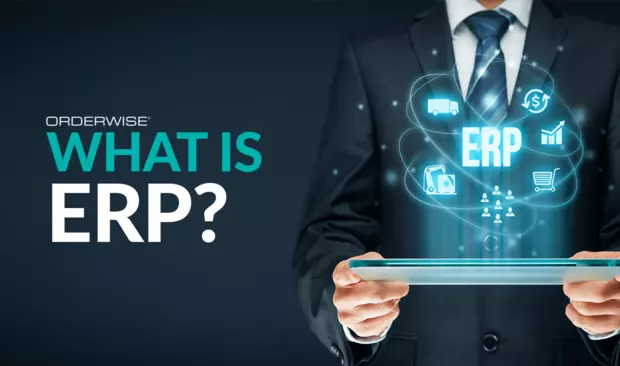What Is ERP?

In today’s business world, acronyms and abbreviations are abundant. To help you navigate through this jungle of terminology, we’re here to shed light on a crucial concept.
What does ERP stand for?
ERP stands for Enterprise Resource Planning. This is often followed by ‘system, software, process, solution, or product’.
An ERP (Enterprise Resource Planning) system is a comprehensive software suite designed to streamline and support all aspects of your business operations. It encompasses everything from sales and ecommerce to accounting, procurement, inventory management, warehouse automation, CRM, and much more.
When a company is small, it might use separate systems to handle individual tasks, leading to repetitive data entry and reorganisation. As the business expands, and time becomes more precious, a more efficient system is needed. An ERP offers a single, integrated solution that enables seamless communication across all business functions.
Key features of an ERP that your business could benefit from include:
Accounting: An integrated accounting module saves time and provides real-time visibility into your company’s financials. A robust ERP will manage credit control, cash flow, invoicing, VAT, and more while integrating with accounting software like Sage, QuickBooks, and Xero.
CRM: Your ERP should serve as the central hub for all customer interactions, tracking relationship progress, identifying opportunities, and coordinating follow-ups across sales, marketing, account, and support teams.
Courier integration: Connecting your courier to your ERP streamlines delivery processes, eliminating manual data entry and ensuring faster delivery times for your customers.
Ecommerce: Whether selling through your website or multiple online marketplaces, a unified software solution simplifies management across platforms like Amazon, eBay, and Etsy, while integrating with inventory management and courier systems.
Manufacturing: An ERP should provide clear, detailed reports on your production processes, ensuring seamless communication with other business functions.
Purchasing: Gain insights into your procurement activities, costs, and order timelines with an ERP that streamlines the purchasing process.
Sales: A sales module within your ERP offers a holistic view of the business, tracking progress and development of potential sales, automating responses, and keeping your team informed of critical developments.
Inventory management: Know your stock levels, locations, order statuses, and reorder triggers, with an ERP that integrates with your courier, purchasing, ecommerce, and sales functions.
What are the advantages of ERP?
The advantages of an ERP go beyond efficiency; it simplifies business management by providing a unified platform for tracking all operations. With 100% traceability, you can easily identify areas of success, areas needing improvement, and the factors influencing these outcomes.
An ERP also supports data-driven decision-making, offering a range of KPIs, business intelligence tools, and alerts to guide your actions.
There is no one-size-fits-all ERP solution; each company’s needs are unique. A tailored ERP system will integrate with your existing systems, ensuring seamless operations, accelerated processes, and minimal disruption.
In conclusion, a well-designed ERP is crucial for any modern business, enhancing efficiency, traceability, and effectiveness across all aspects of operations. To unlock the full potential of what an ERP can do for your business, explore OrderWise today.